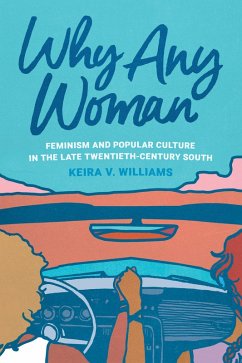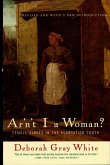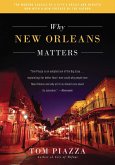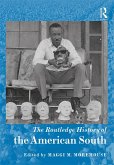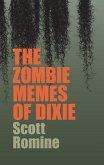Scholars are revisiting the history of feminist activism and organizations, mining it for a revisionist, grassroots gender politics in the South. Why Any Woman advances this line of historical inquiry by focusing on one of the most productive sites of late twentieth-century southern feminisms: popular culture by and about southern women. The nature of popular culture is such that the challenges it poses to the gendered and racial order, for instance, are likely to be consumed-privately, in theaters or at home, alone or with friends or family-by more people than would ever read a feminist manifesto, attend a civil rights demonstration, or lobby a legislator for change. In the cultural desert of the late twentieth-century, pre-internet South, during a time in which there were fewer avenues of activism and organizing, other sources of feminism predominated, and pop culture is where many of us turned for guidance, for role models, and-whether or not we knew it-for consciousness-raising. In a region and during a time of neoconservative backlash in which women's liberation was under attack, southern women's pop culture offered a bridge between the second and third "waves" of feminism and a major challenge to contemporary antifeminist forces.
Why Any Woman examines key texts by and about southern women-the play Crimes of the Heart, the novels The Color Purple and Ugly Ways, the films Thelma and Louise and Beloved, the television shows Designing Women and The Oprah Winfrey Show-as a means of understanding the role of regional popular culture in defining and redefining American feminisms as we approached the twenty-first century. Taken as a collective, these texts expand how we think about the whats, wheres, whens, and hows of feminisms in recent U.S. history. "Why any woman give a shit what people think is a mystery to me," muses the blueswoman Shug Avery in Alice Walker's The Color Purple. Why Any Woman features southerners who, like Shug, rejected and reshaped gender norms, and their stories illustrate some of the ways regional pop culture has been and still is a crucial site of American feminisms.
Why Any Woman examines key texts by and about southern women-the play Crimes of the Heart, the novels The Color Purple and Ugly Ways, the films Thelma and Louise and Beloved, the television shows Designing Women and The Oprah Winfrey Show-as a means of understanding the role of regional popular culture in defining and redefining American feminisms as we approached the twenty-first century. Taken as a collective, these texts expand how we think about the whats, wheres, whens, and hows of feminisms in recent U.S. history. "Why any woman give a shit what people think is a mystery to me," muses the blueswoman Shug Avery in Alice Walker's The Color Purple. Why Any Woman features southerners who, like Shug, rejected and reshaped gender norms, and their stories illustrate some of the ways regional pop culture has been and still is a crucial site of American feminisms.
Dieser Download kann aus rechtlichen Gründen nur mit Rechnungsadresse in A, D ausgeliefert werden.

